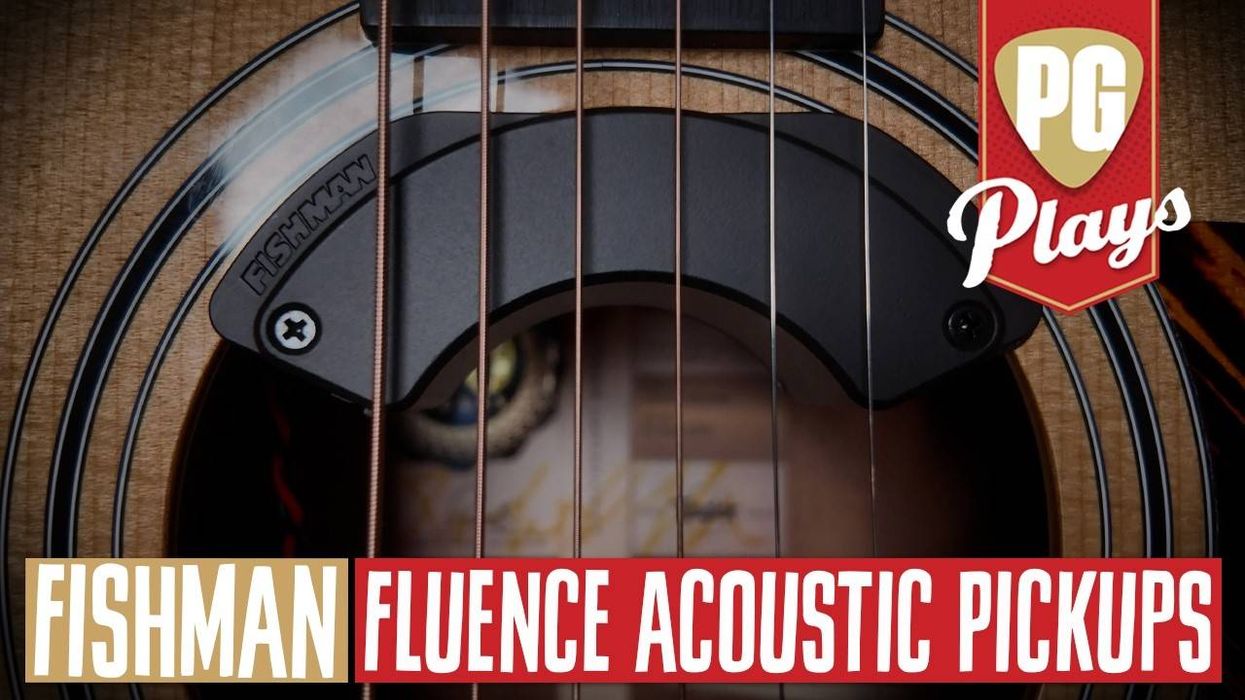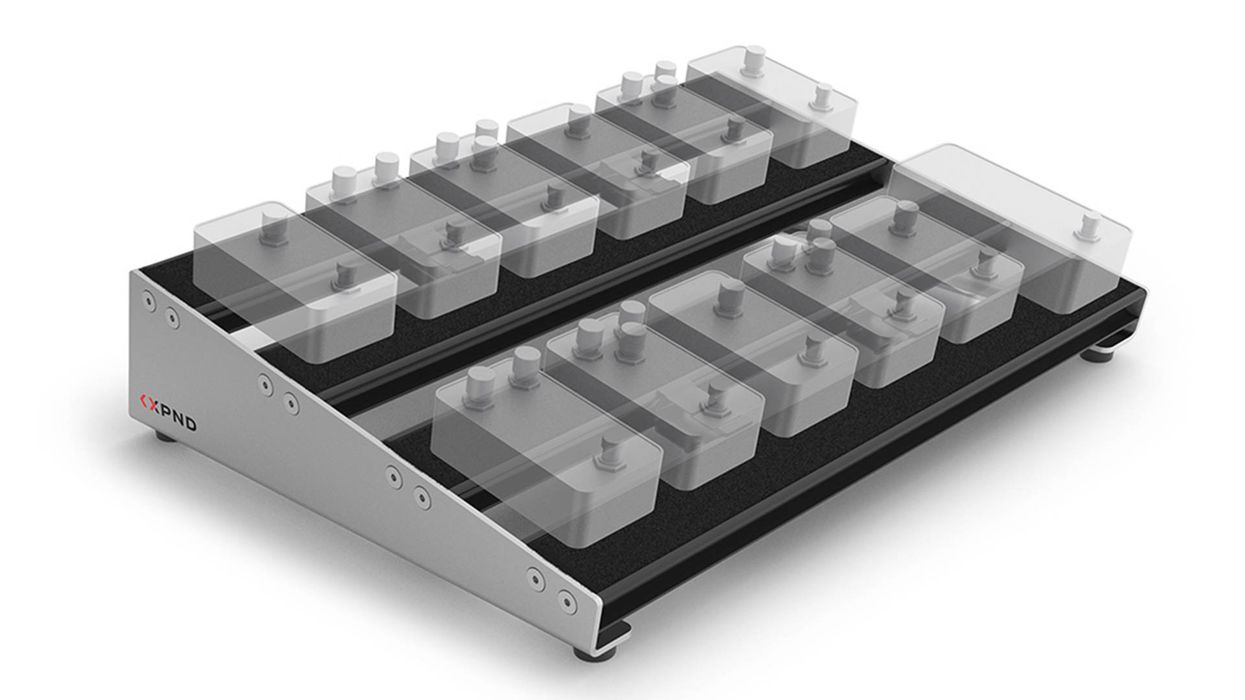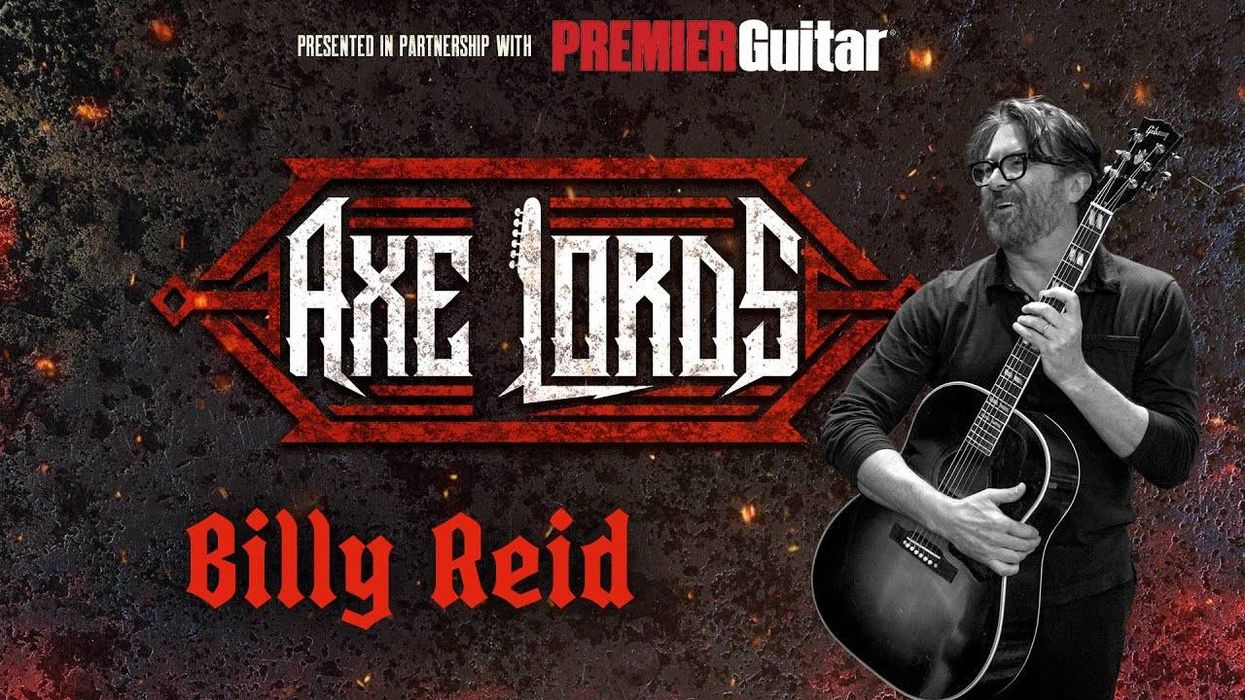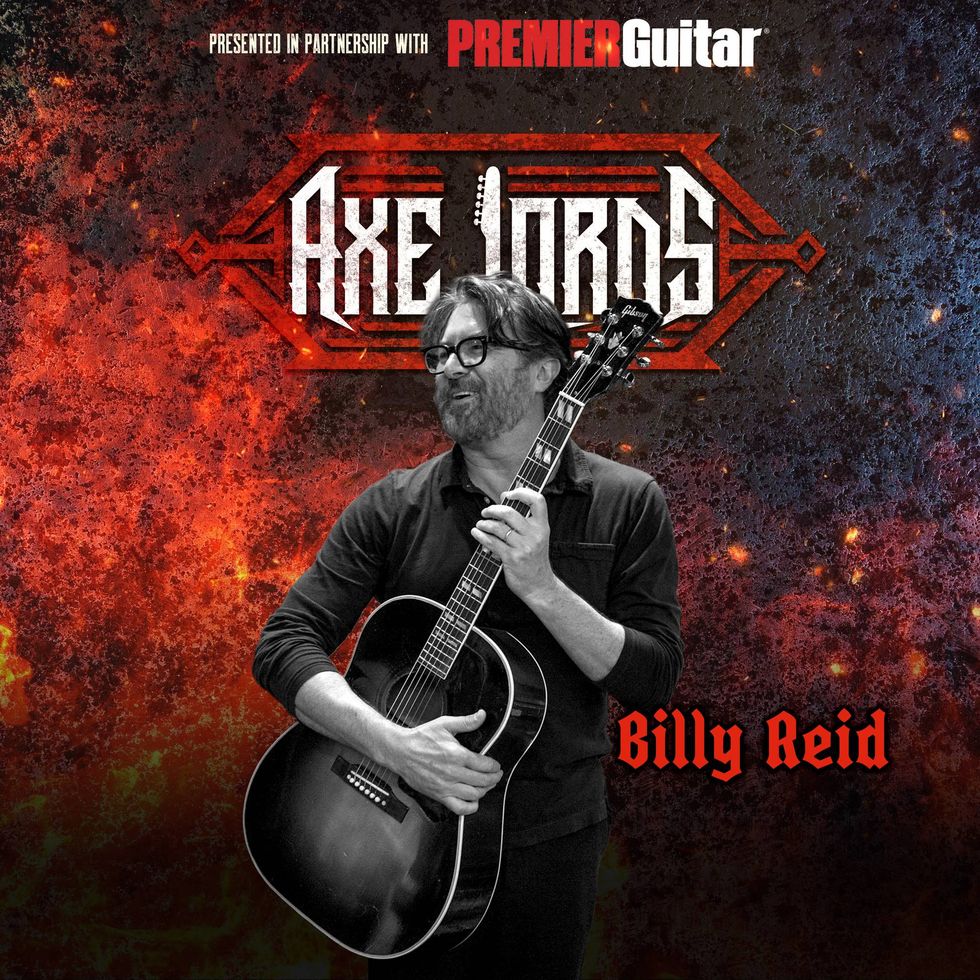Jules Leyhe is gonna piss off some blues guitar purists.
His main passion is the blues, and he cuts the best blues-slide licks since Derek Trucks—maybe even Duane Allman. But you won’t find one blues song on his newest release, Your First Rodeo. In fact, they’re not really on any of his albums. His songs are a steady stream of EDM, ’70s funk, Hendrix-like psychedelic jams, and horn sections from south of the border. Think Oz Noy and his admittedly twisted take on jazz. That’s what Leyhe brings to the blues.
“Oz is doing his version of this thing, too,” says Leyhe. “He loves Hendrix and Stevie Ray Vaughan as much as he loves Allan Holdsworth, Thelonious Monk, and John Coltrane. He’s just doing his mutant Oz Noy version of that. And I’ve got my more slide-guitar-centric version of that.”
Leyhe sees the best of the Delta, Chicago, and 1960s rock in even the most modern genres. And it’s his mission to connect today’s music fans to the bluesy core of their favorite songs. It’s a mission that started at a very young age.
“There was always music in the house when I was growing up, and we were always dancing,” he says. “Way before I ever played, I liked the Beatles, blues, and jazz. I had a CD player, my headphones, and a little CD collection. I loved music. But by the time I saw School of Rock as a 13-year-old, I knew what I needed to do.
Jules Leyhe - Start Your Engines (Official Video)
“That same week I went to see Doc Watson with my dad,” Leyhe remembers. “Driving home from the show, we drove by the Warfield where Jeff Beck happened to be playing. My dad saw ‘Jeff Beck’ up on the marquee, and he goes, ‘Hey, we’re not going home yet; we got to go see Jeff Beck.’ I got my ass kicked by the guitar that night. I’m 13, and I saw Jeff Beck! After that, I said to my dad, who had a Telecaster, ‘Hey man, you got to teach me everything you know.’ I dove in headfirst.”
Leyhe immediately took to the instrument, but he wasn’t into the musical flavors of the week. “I was listening to all the early acoustic blues guys: Robert Johnson, Son House, Muddy Waters. My dad introduced me to it. And he took me to shows. I saw the Rolling Stones, Buddy Guy, Little Richard, Chuck Berry, Jerry Lee Lewis, all as an 8-year-old. That was part of my life.”
All of those experiences and his love affair with the 6-string came together in one magical night—a night that certified Leyhe’s blues credibility. “I played with Buddy Guy for the first time when I was 16. My dad and I went to see him, and Buddy had some wireless setup so he could walk around the entire place. He’s walking right by my dad, and my dad goes, ‘Buddy, my son is here, and he can play some blues.’ Buddy walks back up onstage—and this is all in the middle of a song—and he’s pointing at me and goes, ‘Come on up here.’ I ran up. He put his guitar on me. He literally took his guitar off his back, his famous polka dot guitar, and put it on me. We played a slow blues in G, and he let me take it away. The crowd went bonkers. I’ll never forget it. We became friends that night, and I play with him anytime he’s in town. He was always really supportive. I’ve kept in touch with him ever since. He’s been so freaking cool to me for over half of my life now.”
“As soon as you’re playing the Klon into a Dumble on a Les Paul, it’s like you grew up driving an old Volkswagen Beetle. Now your dad’s giving you the keys to his Maserati and telling you to go have fun on the freeway.”
Leyhe’s love for the blues has never waned since being called onto that stage. It’s apparent in his slide style. But, strangely, it’s not so apparent in the music he writes and records. There’s a good reason for that.
“That’s definitely on purpose. I certainly started as a blues player, but I’m trying to stretch what that can be,” Leyhe explains. “I’d love to make more of a straight-ahead blues record, too. But my mission is to expose the younger generation, who might be listening to totally blues-influenced music, to the origins of where that is coming from. Say, hip-hop, where they’re sampling jazz and blues records. Like, I heard a sampled thing of Johnny Smith, one of my favorite jazz guitar players, the other day. I told my friend, ‘That’s Johnny Smith.’ She said, ‘No, it’s some hip-hop artist who sampled it.’ That’s a great illustration of what I want to do. It’s a baton handing-off between the old generation and the new generation. My music is the moment that both hands are on the baton, and it’s cross-generational inspired.”
Though some purists would call it sacrilegious to play over hip-hop and call yourself a blues guitarist, they obviously haven’t been paying attention. If it was wrong, Muddy Waters would never have electrified it, Clapton couldn’t have cranked his Les Paul into a Marshall JTM45, and Hendrix’s outer-space experiments would be off the table. Don’t even get me started on ZZ Top’s use of synthesizers.
As far as Leyhe sees it, these experiments are all part of the inevitable evolution of the blues. And his playing might just help push it forward.
“I’m trying to filter these things through my slide guitar,” he said. “It’s super Duane Allman-influenced, but I play in a context with maybe hip-hop beats, EDM, or more modern-sounding beats. Like, say, “Taco Truck.” It’s basically Buena Vista Social Club with Cardi B and then a funk band from Oakland. That’s the style.”
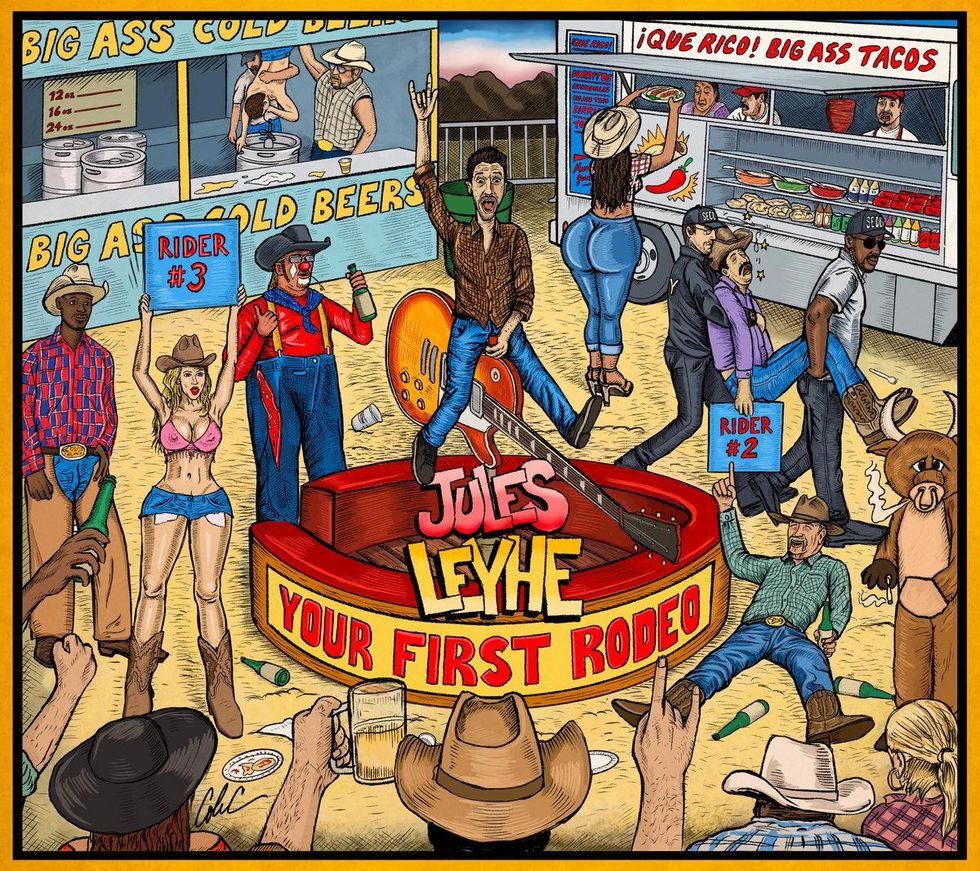
TIDBIT: Jules Leyhe says his engineer, Protist (Nick Bergen), used a Boss Waza Tube Amp Expander as the main studio tool when recording Not Your First Rodeo. When it came to experimenting with effects, Leyhe went deep. “I’m a kid in the candy shop with too many options,” he says. “I really work well that way.”
Your First Rodeo is full of sonic mashups like “Taco Truck.” On the one hand, “The Journey” offers understated melodies with some of the most captivating tones on the album. Then “Start Your Engines” strips everything back to an electronic beat and exploding slide riff. After Leyhe takes us on a wild ride, the album closes with “Sad but True,” a beautiful ballad with a decidedly Motown feel. As you can tell, crossing genres throughout the album was easy for Leyhe and his band (the Jules Family Band). Recording it, however, was not.
“It was totally COVID,” Leyhe says. “It was recorded way before people got vaccinated. It was all done separately and all in one day. No two musicians recorded at the same time. All the musicians came into the studio and took turns. Luckily, we’re all great buddies. We’ve been playing together for 10 years, and we all know each other’s tendencies, so we can give each other space and play off each other.”
The band’s camaraderie is obvious as they ebb and flow through different genres with a tight and live feel. They fill each song with new tones, new instrumentation, and new layers that always keep you guessing. But above all, they make every song entertaining from beginning to end.
“It’s basically Buena Vista Social Club with Cardi B and then a funk band from Oakland. That’s the style.”
“I think music should be really fun,” Leyhe says. “I think that’s something you get if you look at the cover of Your First Rodeo. Everybody chuckles when they see it. That’s what I’m trying to bring—some levity, creativity, and art. Then I think that matches the experience you have when you hear it. Like on the opening track, you’re going, ‘Wait, is this even a guitar record?’”
Though Leyhe’s musicians enjoy plenty of space to stretch out, Your First Rodeo is absolutely a guitar record. And once it was his turn to track, Leyhe didn’t hold back. “Protist [Leyhe’s recording engineer, Nick Bergen] and I used the Boss Waza Tube Amp Expander. That was our studio. We never recorded a cabinet. And there were so many options between pedals and impulse responses that we were spoiled rotten. I think some people feel like, ‘Ah, there are too many options.’ But I felt like, ‘I love too many options!’ I’m a kid in the candy shop with too many options. I really work well that way.”
Those options manifest throughout the album in a myriad of guitar tones. But even though they shift from vintage ’50s cleans with spring reverb to fuzzed-out explosions of energy, the core of Leyhe’s rig is as classic a setup as you can imagine.
“One of the best moves I’ve ever done was getting an Overtone Special, 50-watt amp by Ceriatone. They make Dumble clones. Oh my gosh, this amp was a game-changer for me, my sound, and everything. At this point, I’ve been playing for, man, it’s close to 20 years. And after working hard on it, I finally have an amp that really brings my voice out, and tells the story I want, how I want it to.”
Jules Leyhe’s Gear
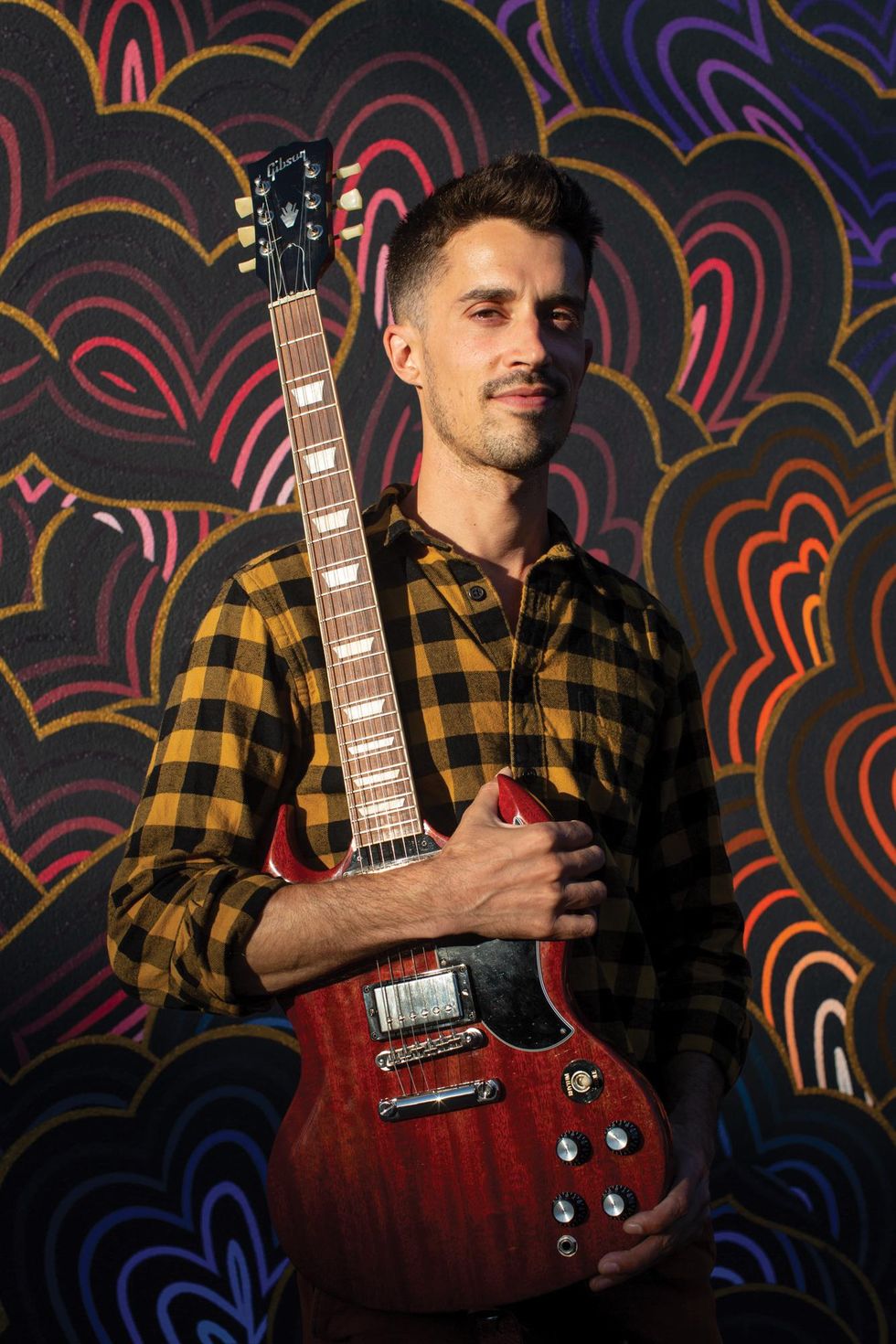
Jules Leyhe prefers his Gibson SG with a Coricidin bottle for playing slide. “It’s the ’61 reissue, and it barks,” he says. “There’s something about the Coricidin bottle. It’s this magic. The tone, it’s this sweet spot. It feels really good on the strings, and I swear it sings.”
Photo Lizzy Myers
Guitars
- Gibson Les Paul 1959 Reissue
- Gibson SG 1961 Reissue
- Fender Deluxe Special Stratocaster
Amps
- Ceriatone Overtone Special 50
- Milkman 1x12 with Celestion G12M-65 Creamback
Strings, Picks, Slide
- GHS Boomers .012 sets, on the SG
- Dunlop .010 sets on the Les Paul
- Dunlop Eric Johnson Jazz IIIs
- Coricidin bottle
Effects
- Ceriatone Centura overdrive
- Vertex Dynamic Distortion
- Vertex Ultraphonix Overdrive
- Vertex Boost
- Vertex Steel String Clean Drive
- Xotic EP Booster
- Line 6 DL4 delay
- TC Electronic Hall of Fame Reverb
- T-Rex Tremster
- Dunlop Cry Baby Mini Wah
- Dunlop Volume (X) Mini
- Mojo Hand FX Luna Vibe
Leyhe is so in love with his Overtone Special that it’s the only guitar amplifier on the record. He often rounds out his rig with the other two-thirds of a tonal trinity. “My high-gain tones are definitely the dirty channel on the amp with a freaking Gibson Les Paul,” he shares. “It’s one of the ’59 reissues. Ceriatone also makes a Klon Centaur clone that I use. They call it the Centura, and, man, that thing is so great. As soon as you’re playing the Klon into a Dumble on a Les Paul, it’s like you grew up driving an old Volkswagen Beetle. Now your dad’s giving you the keys to his Maserati and telling you to go have fun on the freeway. [Laughs.] Part of that is using a lot of gain. That’s a technique or a trick that I definitely rely on. I love the tone you get from a lot of gain. Like, Stevie Ray when he’s playing 'Lenny,' he’s definitely using a lot of gain, but, man, you gotta roll back a little bit to get that sound. Jeff Beck does that a ton, too. I’m sure a lot of guys do that, but those are two of my favorite influences for that sort of thing.”
As hairy as Leyhe’s high-gain sound gets, it’s the exact same setup on the more delicate-sounding solos of “The Journey.” The only twist is Leyhe’s secret weapon: a Dunlop Volume (X) Mini Pedal.
“It’s cool because it’s the same setup, but everything’s way dialed back. It’s still nice and fat, but we turned all the gains down, and I’m riding the volume pedal a lot,” explains Leyhe. “The volume pedal really is a big part of my sound. There’s always a little life on the notes because I’m riding the volume most of the time. Between being expressive with it and the tone from this amp, that’s my sound now.”
But Leyhe’s not afraid to dig into his other effects and experiment. He’ll often throw one of his favorite Vertex overdrives on for a different shade of grit or create full-on soundscapes, “giant worlds” as he calls them, with a Line 6 DL4. “The Planetarium” features this technique. “That song’s in the key of D major,” says Leyhe. “So, I’ll build a big D-pad, where I make random noises and get a layer that I can play over. It almost comes off as the synthesizer or something, but it’s a guitar.”
Another of Your First Rodeo’s standout tones is the harmonica solo on “High Street” … except it’s not a harmonica. It’s his trusty Gibson, Ceriatone, and Klon clone. “It sounds like an old Howlin’ Wolf record or something,” he says. “It’s super raw and nasty. There’s this nasty-ass, low, gritty, bluesy thing and this tight, Tower of Power-ish funk thing going on, too.
“I saw the Rolling Stones, Buddy Guy, Little Richard, Chuck Berry, Jerry Lee Lewis, all as an 8-year-old. That was part of my life.”
“Those are the worlds we’re combining there. But it’s just me playing and trying to sound like a harp. I think part of the sound is that the strings were jangly. I tuned way low to C, and I didn’t use the right [gauges] or anything. They were kind of angel hair pasta-ish [laughs]. But it’s cool that way. You don’t do that the whole time. But once is fine, and actually cool.”
Once is right. “High Street” is the only time Leyhe deviates from his two favorite tunings—standard and open E for slide—for the entire album. And while he often uses a pick, he plays slide with his fingers alone.
“I only play slide on my SG. It’s the ’61 reissue, and it barks,” he explains. “I have it strung up with the action really high. Also, I’m in a band called the Alameda All Stars. They were Gregg Allman’s touring band for a good 12 to 15 years. The guitar player in that band, Jellyroll [Marke Burgstahler], gave me a Coricidin bottle slide, and I use that as my main slide. There’s something about the Coricidin bottle. It’s this magic. The tone, it’s this sweet spot. It feels really good on the strings, and I swear it sings.”
Coricidin bottle slide on pinky finger, Leyhe is on the rise at the perfect time. Derek Trucks is at the height of his lauded career, and roots-based players like Justin Johnson, Ariel Posen, and Joey Landreth (The Bros. Landreth) dominate YouTube guitar channels and are hitting the charts. People can’t get enough slide guitar.
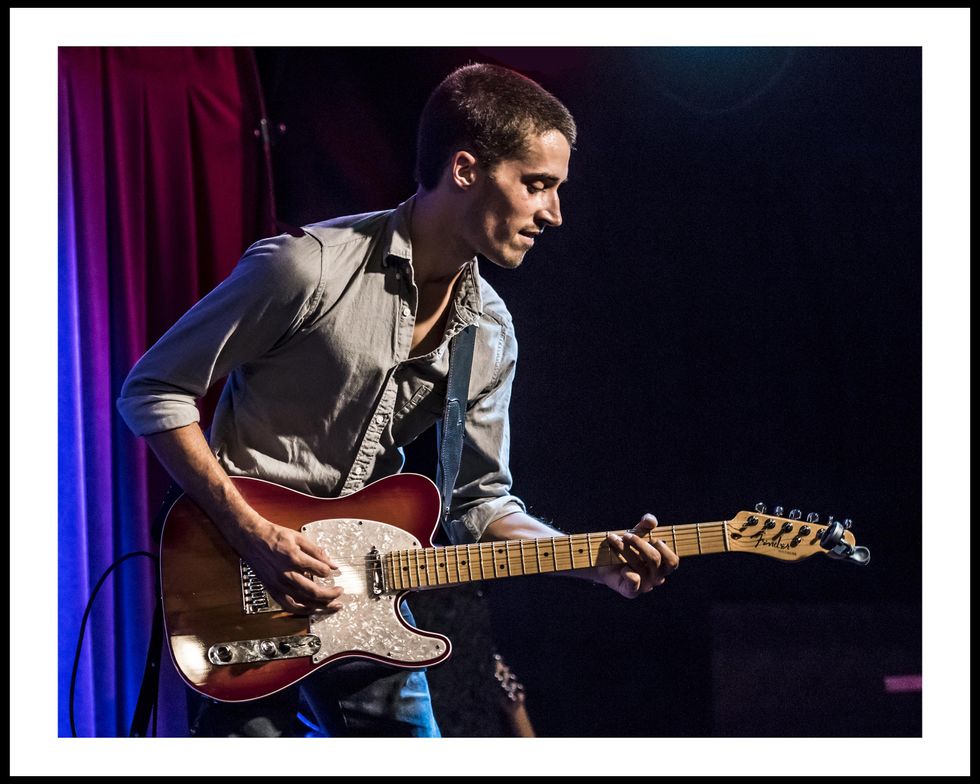
On his new album, Jules Leyhe’s winning combo was a Les Paul, a Ceriatone Overtone Special, and a Klon clone. But he doesn’t ever stick to just one guitar. Here he dons a Telecaster, which is the model he started playing with his dad at age 13.
Photo by Bob Hakins
“Slide is the most powerful way of specifically conveying my musical thoughts,” Leyhe says. “It has a heavy sound. You can really get sad and mournful, or you can really rock a room. Like, we were playing last night, some classic Chicago blues romp, and everyone’s shaking their ass. But then I can make people cry playing ‘Amazing Grace’ like we’re at church or something. It’s amazing what you can do. People respond to it so much. If there’s a slide playing a melody well, people melt. I can’t put my finger on it exactly, but I’ve seen that over and over. It gives me goosebumps, and it’s what I’m into. It’s this mysterious thing.”
Unfortunately, people may have to wait to hear Leyhe’s slide in person. Like most artists, he hasn’t been able to perform as often as he’d like. But that doesn’t mean you can’t watch him play. Harnessing the power of YouTube, Leyhe created a guitarist’s dream channel full of his performances, lessons, gear overviews, and more. Hell, he may be in front of more fans now than ever.
With a new album, a growing YouTube channel, and even playing the “Star Spangled Banner” at Oakland A’s games, Leyhe is in a good place artistically and career-wise. But the future is calling. He’s already recorded his next album, tentatively titled Dub Blues. If all goes as planned, it will be another step in lifting the blues into the future.
“It doesn’t have to be like, ‘I went to this blues show, and I heard some slide guitar.’ What if you went to a classical show, or opera, or anything else?”
But Leyhe doesn’t want to go it alone. He hopes his genre-bending forays rub off on his contemporaries. “The blues is in a funny place, and I think it needs to be carried forward with more than chops,” Leyhe says. “I’m trying to say that delicately, but we got to do what the Beatles did in the studio.
“They weren’t going to have two-minute pop tunes forever. They needed to be artists. I want to hear more of the art. I love guys like Josh Smith, Kirk Fletcher, and Eric Gales. Shit, these guys are all amazing. Everybody can ball. If you get guys like Eric Gales, Joe Bonamassa, Josh Smith all playing, that’s an NBA All-Star game. But I’d love for those guys to hear what I’m doing here. I want to hear the imagination that’s on records like Electric Ladyland and Sgt. Pepper’s.”
Whether his heroes share this view, we’ll have to see. But one thing’s for sure, Leyhe’s not putting any limits on his favorite music. Considering slide guitar’s current popularity, he’s happier than ever to bring it to a broader audience.
“I love it, and people love it everywhere. It’s this universal thing. People fucking love slide guitar. So it doesn’t have to be like, ‘I went to this blues show, and I heard some slide guitar.’ What if you went to a classical show, or opera, or anything else? That would be really wild. I’m definitely trying to do my part to bring it into other contexts.”
Jules Leyhe and the Family Jules Band | PayPal: jleyhe@gmail.com
Jules Leyhe and his band played a traditional-flavored blues gig in early 2021, performing as a quartet with guitar, drums, saxophone, and keys. Jump to 43 minutes in to see Leyhe’s slide chops.


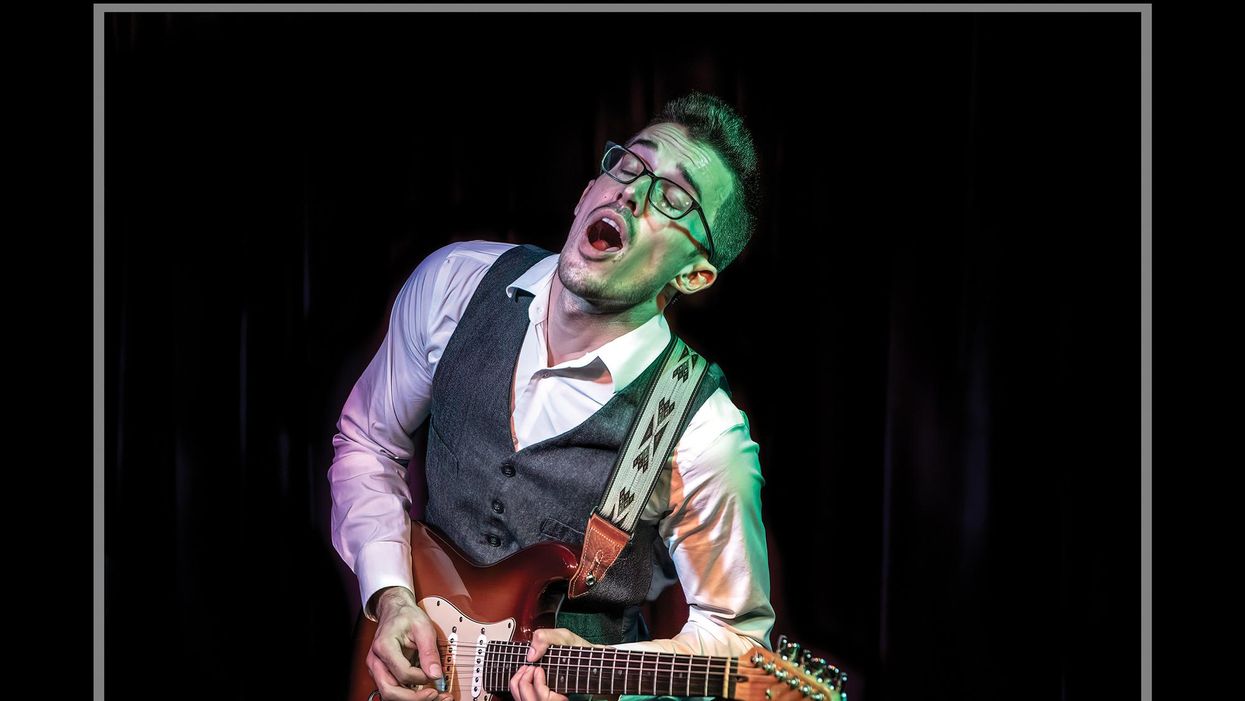






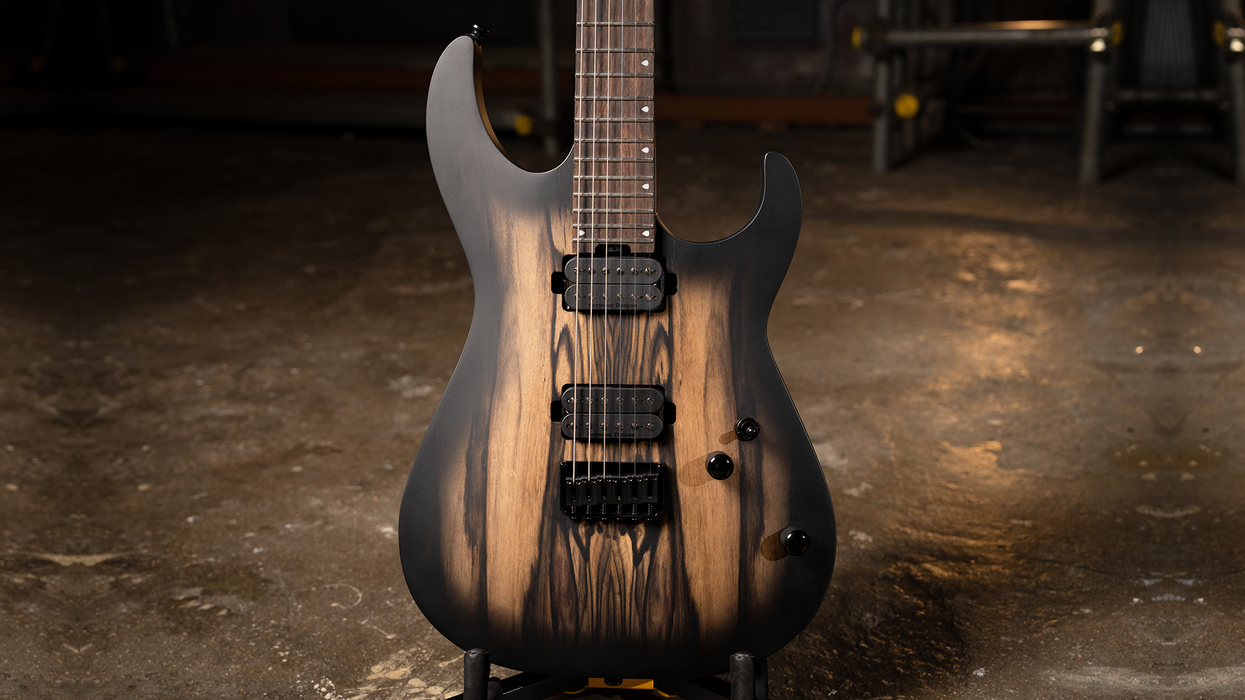

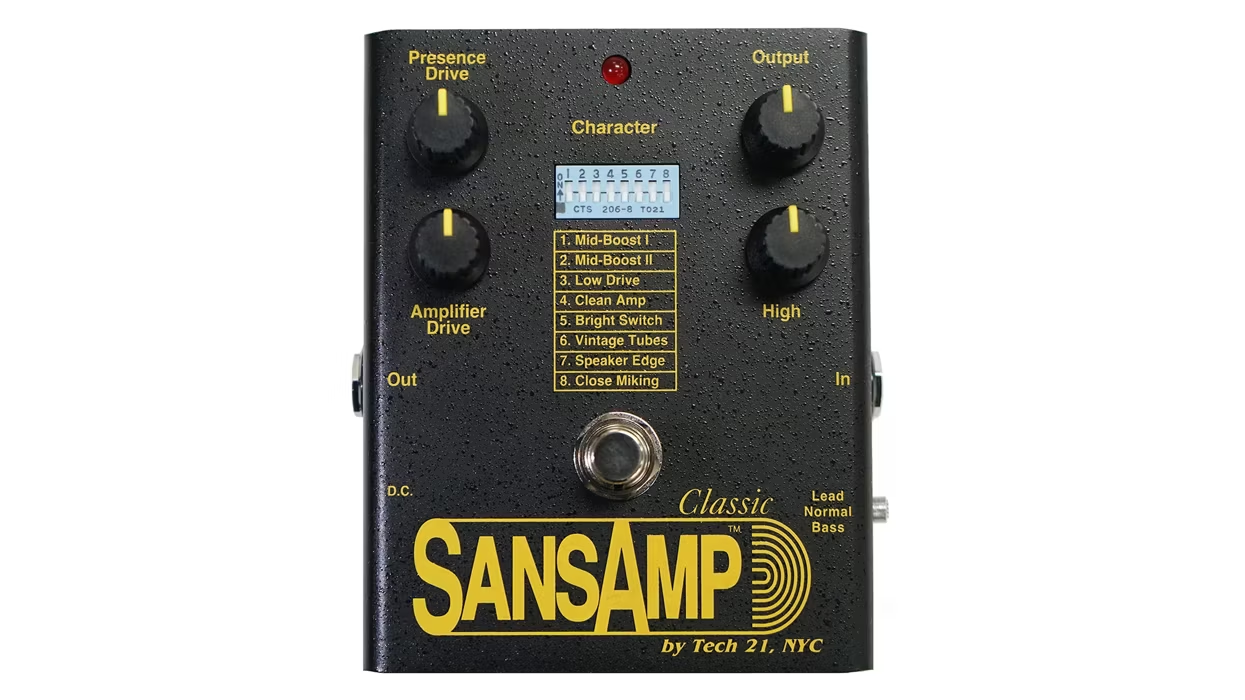
![Rig Rundown: Russian Circles’ Mike Sullivan [2025]](https://www.premierguitar.com/media-library/youtube.jpg?id=62303631&width=1245&height=700&quality=70&coordinates=0%2C0%2C0%2C0)
